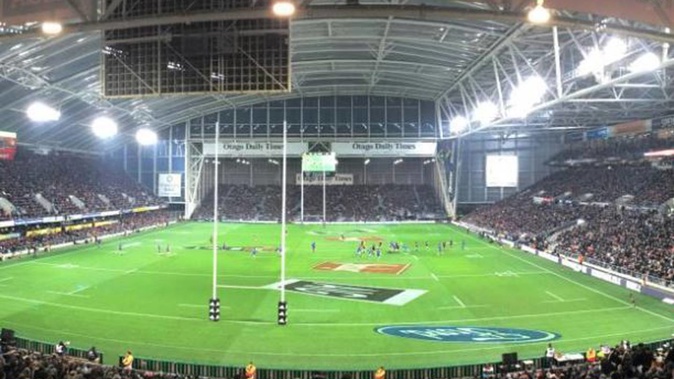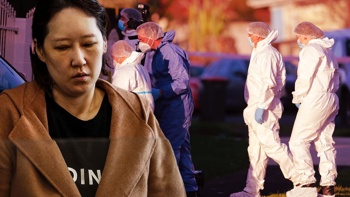
Health officials are deeply concerned tonight's All Blacks rugby test against Ireland could turn into a superspreader event for Covid-19 and various winter ailments.
A sell-out crowd of 28,500 will be at Forsyth Barr Stadium this evening, many having mingled in Dunedin's bars and restaurants beforehand, and likely to hit the town afterwards.
WellSouth medical director Carol Atmore yesterday pleaded for people who had tickets for tonight's test to consider the health of themselves and others.
"It is really important that if people are sick that they don't go," Dr Atmore said.
"I know that would be really disappointing ... but Covid hasn't gone away ... we are still in the middle of Covid."
University of Otago Wellington epidemiologist Prof Michael Baker echoed Atmore's concerns about the impact the test could have on southern case numbers.
"Hopefully people will wear masks but remember it's not the big crowd, it's all the things that surround that, like queuing for food, packing into venues like pubs before and afterwards, and public transport.
"There is no question that there will be a lot of sharing of the virus associated with that event."
A Ministry of Health "computer glitch" meant the South was incorrectly reported as having topped 1000 new daily community cases yesterday.
The ministry's 1pm update said there were 1017 new cases in Otago and Southland, which would have been a 33 per cent increase in daily case numbers from the previous Friday and the first day with more than 1000 cases since April 28.
However, at 4.30pm the ministry corrected both its national and regional totals, and altered the South's daily case number to 658 — a figure well down from the 849 cases it reported on Thursday.
"A computer glitch that double-counted some cases already reported yesterday resulted in today's national case numbers being incorrectly reported as 13,344," a spokesman said.
"The correct figure is 9318, which is around the same level as case numbers reported for the past three days."
Covid planners have long believed pandemic cases are greatly underreported in New Zealand, either because symptoms are mild and people do not realise that they have Covid, or through indifference.
Despite yesterday's botch by the ministry, southern health officials expect the surge in Covid-19 cases means the region will once again record more than 1000 daily Covid cases sooner rather than later.
Baker agreed and predicted the region could experience case numbers almost as steep as the rise in the initial Omicron wave.
Baker and other epidemiologists and Covid planners have been warning for the past fortnight another Covid-19 wave was beginning, and this week's numbers showed it was now underway he said.
The big jump in Covid-19 cases, as well as a high rate of winter ailments such as influenza, is placing enormous strain on southern health services.
Yesterday, 23 deaths of people who had Covid-19, including a case from January and others from May and June, were reported.
Two of those were in the South, which had 31 people in the hospital who had the pandemic disease.
On Thursday, Health New Zealand Southern said all local hospitals were at or near capacity and were also suffering serious staff shortages because of Covid requirements or winter illnesses.
Conditions are understood to have not markedly changed yesterday.
Take your Radio, Podcasts and Music with you









